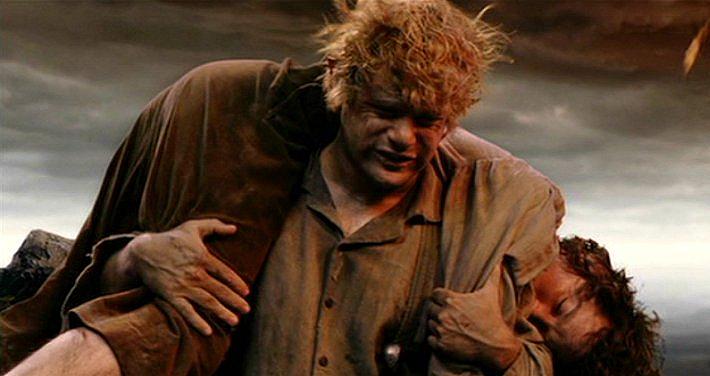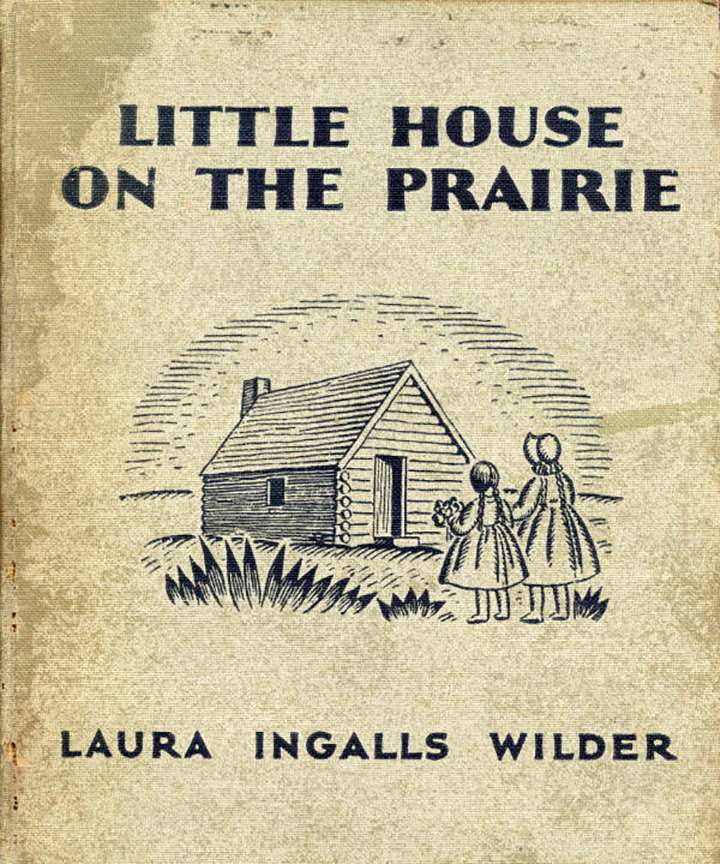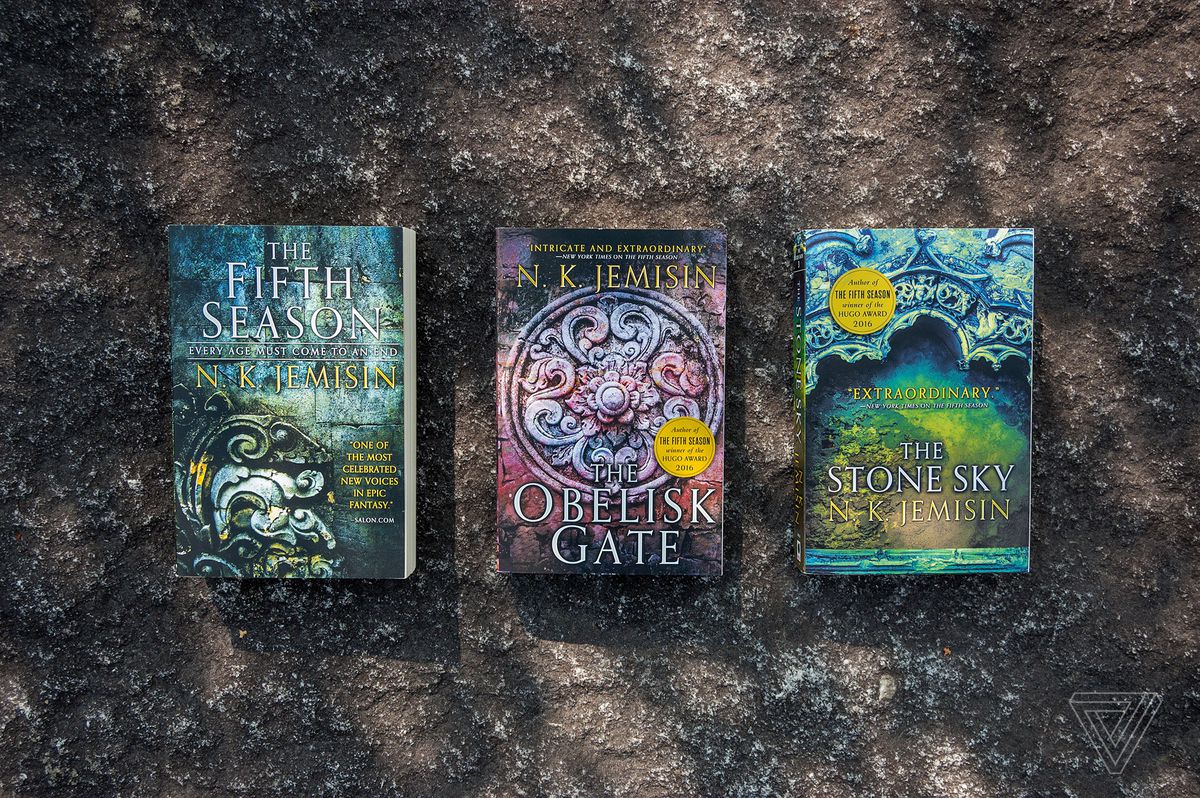Beyond the Possible: On World Building
By Amanda Leduc
Sometimes, I think about what would have happened to Frodo and Sam if, during their journey across the land to Mordor, Frodo had fallen down a jagged slope of rocks and broken his leg.
Would Frodo, delirious with pain, have urged Sam onward right from the beginning? Surely Sam, being the faithful gardener that he is, would have tried to carry Frodo for a period of time. But how long would it have been before Sam took the ring and continued forward alone, as eventually happened when they met Shelob the spider? How long before the confines of the world that Tolkien built crashed in upon Frodo and said what they often say to anyone disabled? You can’t continue on. You’re a burden, an inconvenience.
You’re getting in the way.
*
When I was six years old, I had surgery to lengthen a tendon in my right leg and straighten my foot. I wore a cast for six weeks. I had a taxi that drove me to school and a special table set up in the classroom because my wheelchair wouldn’t fit behind a desk. The school playground was paved, but unevenly, and most of the time it was just easier to stay inside at recess, so that’s what I did.
I read books while people ran outside and played tag. My parents had given me the Little House books while I’d been in hospital. I followed the Ingalls family west, from Wisconsin to South Dakota. The family lived in cabins and in towns and once, for a time, in a dugout. Mary Ingalls contracted scarlet fever and lost her sight; later, the family managed to save enough to send her to a special school for the blind. She came back for a visit and showed her family how she wrote. Her stylus made smooth little bumps on the page. I brushed my own hands over smooth pieces of paper and wondered what that felt like, to trace a bump with my fingers and know it meant something important.
There were no wheelchairs in the Little House books, although disability was there in Mary Ingalls. (There was also a great deal of racism and a host of other problematic issues that I realized later on, but that is another column for another day.) There were no wheelchairs in Lord of the Rings, either—though ditto for the racism here too—but at the time of my first reading this only made sense. One set of books took place over a century ago and the other books took place in a world that wasn’t even ours. Wheelchairs, I figured, were probably just unrealistic.
The Fifth Season, the first book in N.K Jemisin’s award-winning Broken Earth trilogy, opens with an earthquake that breaks the world. We are introduced to Essun, a woman whose youngest child has just been murdered. The baby is killed by his own father because the man has discovered he’s an orogene—an individual born with the ability to cause earthquakes and tremors. In the world of the novel, orogeny is a thing to be feared—orogenesare shunned and mocked and killed unless they are taken to the Fulcrum, a training institute where they learn to soothe the world’s fault lines and become useful government slaves.
Essun is also an orogene, a fact that she’s kept from her husband. Their oldest daughter, Nassun, is an orogene too. After grieving over the body of her dead son, Essun sets out on a quest for vengeance, desperate to overtake her husband and abducted daughter and get her daughter back. She begins her quest alone but is soon joined by others—Hoa, a strange young boy of indeterminate origin, a trans-woman named Tonkee. As the world darkens around them and Essun’s powers stretch and flex, she discovers that her rage and magic and the changed world that they live in are, literally, turning her body to stone.
*
Your CanLit News
Subscribe to Open Book’s newsletter to get local book events, literary content, writing tips, and more in your inbox
At the climax of The Return of the King, Frodo is overcome by the spirit of the One Ring and refuses to throw it into Mount Doom. He is saved only by the creature Gollum, who jumps on him and bites off the finger that holds the Ring. Gollum then tumbles into the fiery heart of the mountain.
Frodo, maimed and bleeding, is brought out of the mountain by Sam. Both hobbits are eventually rescued, and Frodo’s plight becomes the stuff of song. Let me tell you the tale of Frodo the Nine-Fingered and the Ring of Doom. But he was unequal to the task, in the end. It was only through losing a part of himself that he managed to save the day.
What does it mean when becoming less than whole is seen as a price to pay for freedom?
What does less than whole mean in the first place?
*
Almanzo Wilder, Laura Ingalls Wilder’s husband, was stricken with diphtheria in 1888 and walked with a cane for the rest of his life. His inability to do hard labour as a result of this disability slid the Wilder family into debt and poverty. The semi-autobiographical books that chronicle Laura Ingalls Wilder’s early years of marriage do not dwell on this. There is, after all, a limit to the realism and sadness that one can expect in children’s books.
This is what I thought when I was younger, anyway.
*
At the end of The Obelisk Gate, the second volume in Jemisin’s trilogy, Nassun’s arm turns to stone. Hoa, who has in the interim revealed himself to be a stone eater, member of a race that eats just that, takes her arm away.
In The Stone Sky, the third and final book, Nassun loses a breast to the same.
This changes nothing about her, or her dreams. If anything, it allows her to become more of who she is, who she’s meant to be.
World-building is a strange term. When I think of it I imagine objects grouped together, like in art class: balls of clay, models, a long bowl filled with plaster-of-paris. Toothpicks and popsicle sticks that can, with the addition of a Sharpie and some clay, turn into people. Here are the mountains of Mordor, here is where the Eye casts out for the One Ring.
But also, here is the town of De Smet, South Dakota, where the Ingalls family finally settled and where two of the four Ingalls sisters eventually died. Here is Rocky Ridge farm. Here are Almanzo and Laura, here is Rose Wilder Lane following stories over sea.
Here is the Stillness, and the orogenes that try to soothe it. Two made-up worlds and a real one, and yet all three worlds are built with the same toothpicks and clay. You use these tools in fantasy and you use them in the real world too.
People and places, language and things.
Preconceptions and ideas. Worlds that accept different bodies, and worlds that do not.
*
Whether it’s intentional or not, the worlds that we build in our books reflect, on some level, the world that we want to have. Perhaps you’re writing a quest saga in a world that resembles the Middle Ages. Maybe you’re writing a historical novel about a family that tries to do its best by its blind eldest daughter. Or maybe you’re writing a fantasy filled with people who call up earthquakes and races who eat stone. The same thing applies in each story: there is a conflict, and you need to resolve it. World-building is about how the environment around your character is created to spur that conflict on—it’s about how the tools that the protagonist is given reflect the culture and the time in which they live, the constraints that come about as a result of their society or the freedoms that are there because of the same.
Take Frodo. In writing a quest narrative in a world that resembles the Middle Ages—a world built for horseback riding and walking and grueling treks even for those in the best of health—a disability is just naturally seen as an inconvenience, especially if the possibilities of a world don’t stretch to see it otherwise. Funny, isn’t it, how a world that encompasses Orcs and Elves and Dwarves doesn’t stretch to include different human bodies.
Unless, of course, this different body signifies a noble sacrifice. The hero gives up his finger, becomes less than, and in so doing saves the world. The noble disabled, who gives up so that others might have.
But is Frodo really less because he’s lost a finger, because his quest destroys the Ring but also, eventually, damages his spirit? Is Mary Ingalls less because she’s blind?
*
Essun, certainly, is not less because she loses an arm and a breast. Consider: what might be possible in fiction when we dare ourselves to go beyond what is?
*
It’s a reflection of the culture of the times is a phrase that, oddly, gets bandied about a lot when people talk world-building. Usually it’s meant to reference science fiction and fantastical worlds in particular—especially those tried-and-true white knight/spaceship stories that come to us straight from the patriarchy. But whether your world is ten galaxies away or right here in the present, when you build a world that has no disabled bodies you are saying, on some level, that you don’t expect disabled people to participate in society. You don’t think about them; you don’t expect them to be there. And when you build a world that posits the disabled body as noble sacrifice, you reinforce the idea that these bodies are less—that they can’t keep up with a “normal” body, and are useful only insofar as they allow other bodies to shine.
But we are here. We have stories too. We can board spaceships and go on magical quests and function in the real world just like anyone else, given enough support. The question is not what is or isn’t realistic, given the parameters that you’ve set up—the question is what are you going to do to make it possible.
*
I will always have a soft spot for the Lord of the Rings books, in much the same way as I’ll always have a soft spot for my time in hospital, making my way across the USA with Laura Ingalls and her family. But I’ve grown beyond these books now. I want the worlds that I encounter to do more than prop up the societies and expectations that we already have. I want to read about disabled boys and girls who go on long quests and return from them triumphant. I want to read about a woman who loses an arm and a breast in the process of remaking a world and sees it only as inconvenience—not as something that stops her, but as something that gives new weight to her journey. I want us, as writers, to imagine a different world—on the page, and in person.
Change starts in the stories that we tell. It starts in the dreams that we whisper to one another, and it takes shape in the stories that we decide to share with the rest of the world. Representation matters—whether the world that you’re representing is “real” or has small halfling creatures who love mushrooms and walk on furry feet. When you build the world of your novel or story, think about how the pressures of the society you sketch might affect those with different bodies. Ask yourself: what would happen if your characters weren’t able to walk blithely from Point A to Point B? How do you get them there instead? If you have a character who is blind, what kinds of things will you need to build into your society in order to allow them to flourish? How, in your writing, can you make space for those who might move through the world in a different way?
When I was six years old, I saw how Mary Ingalls moved through the world in a way that was different. I also saw how difficult it would have been for someone like the girl that I was at the time—how many wheelchairs on the prairie?—to have moved through that same space. When I read The Lord of the Rings, I thought the same, though it didn’t occur to me years later that this was an issue we could fix.
Writing—all writing, but science fiction and fantasy writing in particular—is at its core an act of going beyond the possible, of creating something from nothing and bringing to life a world that isn’t real. It is the ultimate hopeful act, a way of moving beyond the reality that we know into world of our making. It allows us to dream and explore ideas that might seem outrageous but also just might change the world in some unforeseen way. When viewed like this, world-building that likewise goes beyond what’s possible becomes all the more important. So the next time you sit down to write, build a world that can fit all manner of bodies. Move yourself beyond this is hard to imagine or this is difficult to implement or it’s just a reflection of the quasi-Middle-Ages in which this story takes place. The act of world-building is itself inherently magical. Stretch that magic to include those who are different from you, and watch how this in turn might change the way you see the world.
Think about that the next time you wonder if it’s unrealistic to have a girl in crutches who saves someone from a dragon.
It isn’t. You’re just unrealistic for thinking that it isn’t possible.
The views expressed by Open Book columnists are those held by the authors and do not necessarily reflect the views of Open Book.
Amanda Leduc is a disabled author with cerebral palsy whose stories and essays have appeared in publications across Canada, the US, the UK, and Australia. Her first novel, THE MIRACLES OF ORDINARY MEN, was published in 2013 by Toronto's ECW Press, and her new novel, THE CENTAUR’S WIFE, is forthcoming with Random House Canada. She lives in Hamilton, Ontario, where she serves as the Communications and Development Coordinator for the Festival of Literary Diversity (FOLD), Canada’s first festival for diverse authors and stories.






